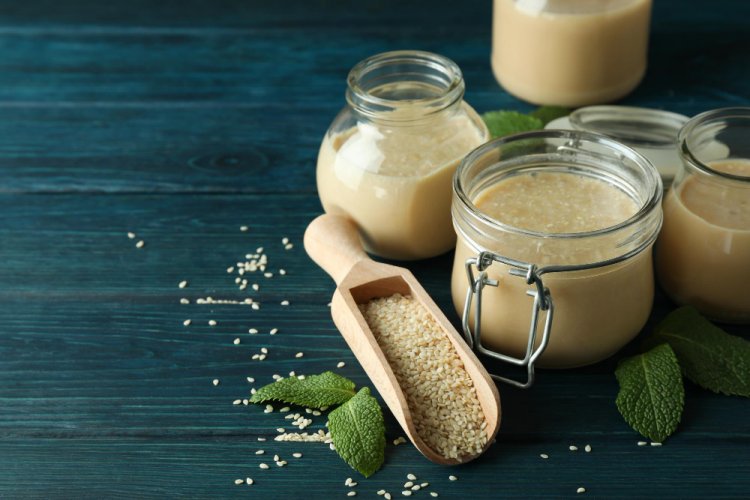Sesame: The Versatile Seed with Global Significance
Sesame (Sesamum indicum) is a flowering plant native to sub-Saharan Africa and the Indian subcontinent. It is primarily cultivated for its seeds, which have been valued for thousands of years for their nutritional, culinary, and medicinal properties. Sesame seeds come in various colors, including white, black, and brown, and they are widely used in cuisines around the world. Beyond culinary applications, sesame seeds also play a significant role in traditional medicine and various industries.

Historical Significance
Sesame has a rich history dating back to ancient civilizations. Archaeological evidence suggests that sesame was domesticated over 3,000 years ago in the Indus Valley region, present-day India and Pakistan. Ancient cultures such as the Babylonians, Assyrians, Egyptians, and Greeks revered sesame seeds for their symbolic, culinary, and medicinal importance. The ancient Egyptians used sesame oil for cooking and religious rituals, while the Greeks considered sesame seeds as a symbol of immortality.
Nutritional Value
Sesame seeds are nutrient-dense and packed with essential vitamins, minerals, and antioxidants. They are an excellent source of protein, healthy fats, fiber, and various micronutrients, including calcium, iron, magnesium, phosphorus, and zinc. Additionally, sesame seeds contain lignans and phytosterols, bioactive compounds known for their potential health benefits, such as reducing inflammation, supporting heart health, and promoting digestive wellness.
Culinary Uses
Sesame seeds are a versatile ingredient in culinary traditions worldwide. They are commonly used as a topping for bread, rolls, and crackers, adding a nutty flavor and crunchy texture. Sesame seeds are also ground into a paste called tahini, a staple ingredient in Middle Eastern cuisine used to make hummus, baba ganoush, and various sauces. In Asian cuisines, sesame oil is prized for its distinct flavor and aroma, enhancing stir-fries, marinades, dressings, and dipping sauces.
Medicinal Properties
In traditional medicine systems such as Ayurveda and Traditional Chinese Medicine (TCM), sesame seeds are valued for their medicinal properties. Sesame oil is believed to have moisturizing, anti-inflammatory, and antimicrobial effects, making it a common ingredient in skincare products and massage oils. Moreover, sesame seeds are considered a natural source of antioxidants, which may help protect against oxidative stress and age-related diseases.
Industrial Applications
Sesame seeds are not only prized in the kitchen but also in various industries. Sesame oil is used in cosmetics, pharmaceuticals, and lubricants due to its stability and skin-nourishing properties. In the food industry, sesame seeds are ground into flour and used to make confectionery products like halva and sesame bars. Additionally, sesame seed extract is utilized in the production of soaps, perfumes, and insecticides.
Global Production and Trade
Sesame is grown in over 80 countries across Asia, Africa, and the Americas, with the largest producers being India, China, Sudan, Myanmar, and Ethiopia. The global demand for sesame seeds continues to rise due to their versatility and perceived health benefits. International trade of sesame seeds is significant, with major exporting countries supplying sesame to markets worldwide. However, challenges such as climate change, pests, and fluctuating prices pose threats to sesame production and trade.
Sesame is a remarkable plant with a long history of cultural, culinary, and medicinal significance. From ancient civilizations to modern societies, sesame seeds have remained a valuable ingredient in diverse cuisines and industries around the globe. With its nutritional richness, culinary versatility, and numerous health benefits, sesame continues to captivate the interest of people worldwide, ensuring its enduring importance for generations to come.
#SesameSeeds #SesameOil #CulinaryUses #NutritionalValue #HealthBenefits #TraditionalMedicine #GlobalProduction #IndustrialApplications #AncientCuisine #HealthyEating #PlantBased #Superfoods #FoodHistory #SustainableFarming #FoodIndustry #GlobalTrade #HealthyLiving #NaturalRemedies
Disclaimer:
The information provided in this article is for educational purposes only and should not be considered medical advice. If you have any health concerns or are experiencing symptoms, it is important to consult with a healthcare professional, such as a doctor or clinic, for proper diagnosis and treatment. Always seek the advice of your doctor or other qualified health provider with any questions you may have regarding a medical condition. Do not disregard professional medical advice or delay in seeking it because of something you have read in this article.
What's Your Reaction?





















